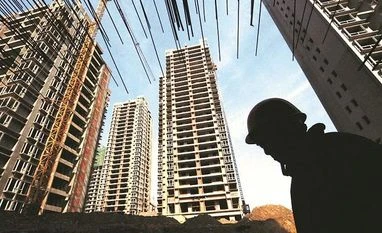As many as 358 infrastructure projects, each worth Rs 1.5 billion or above, have shown cost overruns to the tune of over Rs 3.37 trillion owing to delays and other reasons, a report said.
The Ministry of Statistics and Programme Implementation monitors infrastructure projects worth Rs 1.5 billion and above.
"Total original cost of implementation of the 1,361 projects was Rs 16.78 trillion and their anticipated completion cost is likely to be Rs 20.16 trillion, which reflects overall cost overruns of Rs 3.37 trillion (20.12 per cent of original cost)," the ministry's latest report for July 2018 said.
Of these 1,361 projects, 358 reported cost overruns and 296 time escalation.
The expenditure incurred on these projects till July 2018 was Rs 7.68 trillion, which is 38.10 per cent of the anticipated cost of the projects, the report said.
However, the number of delayed projects decreases to 226 if delay is calculated on the basis of latest schedule of completion.
Also Read
For 660 projects neither the year of commissioning nor the tentative gestation period has been reported. Out of 296 delayed projects, 77 (26 per cent) projects have overall delay in the range of 1 to 12 months, 51 (17 per cent) projects have delay in the range of 13 to 24 months, 83 (28 per cent) projects have delay in the range of 25 to 60 months and 85 (29 per cent) projects have delay of 61 months and above.
The report stated that the average time overrun in these 296 delayed projects is 48.39 months
The brief reasons for time overruns as reported by various project implementing agencies are delay in land acquisition, forest clearance, supply of equipment.
Besides, there are other reasons like fund constraints, geological surprises, problems in equipment erection, geo-mining conditions, slow progress in civil works, shortage of labour, inadequate mobilisation by the contractor, maoist problems, court cases, contractual issues, ROU/ROW (right of use/right of way) problems, law and order situation etc.
It also observed that project agencies are not reporting revised cost estimates and commissioning schedules for many projects, which suggests that time/cost overrun figures are under-reported.
)